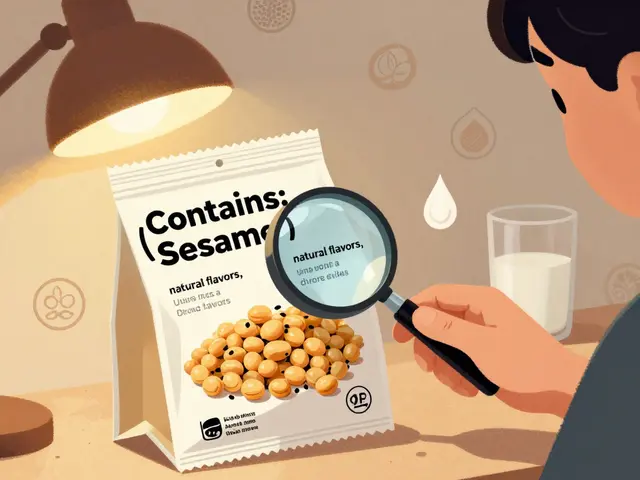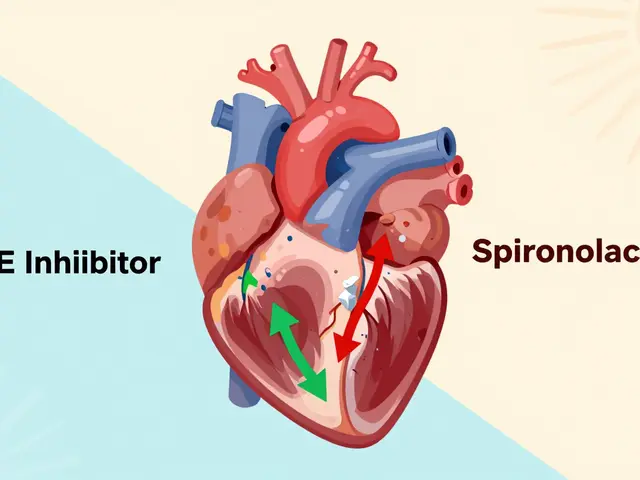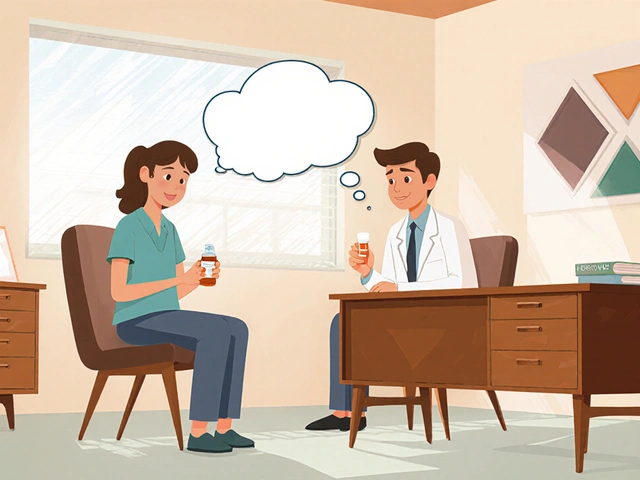Quarantine is a public health tool that separates people who may have been exposed to a contagious disease but are not yet ill. When a novel influenza outbreak hits a community, authorities scramble to stop transmission while respecting citizens’ rights. The tension between safety and liberty fuels heated debate, and the answer lies in a mix of law, ethics, and on‑the‑ground practice.
Legal Foundations
Modern societies rely on three pillars to justify quarantine:
- Public health law - statutes that grant governments the power to intervene during health emergencies.
- International Health Regulations (IHR) - a binding framework from the World Health Organization that sets minimum standards for disease control across borders.
- Emergency powers - temporary authorities activated by a declared emergency, often limited by constitutional safeguards such as due process.
The landmark U.S. case Jacobson v. Massachusetts (1905) affirmed that states may compel vaccination and, by extension, enforce quarantine when a serious public threat exists. Yet the ruling also underscored that such power is not unlimited; measures must be reasonable, non‑arbitrary, and subject to judicial review.
Ethical Pillars
Beyond statutes, ethical reasoning shapes every quarantine decision. Four core principles dominate the conversation:
- Human rights - the right to liberty, privacy, and freedom from arbitrary detention.
- Proportionality - restrictions must match the level of risk; a short, targeted quarantine is preferable to an indefinite blanket order.
- Least restrictive means - if isolation of confirmed cases suffices, imposing quarantine on asymptomatic contacts becomes harder to justify.
- Transparency and accountability - clear communication about why, how long, and what support will be provided builds public trust.
When these values clash, policymakers run a balancing act: protecting the community while minimizing unnecessary burdens on individuals.
Quarantine vs. Isolation: A Quick Comparison
| Aspect | Quarantine | Isolation |
|---|---|---|
| Legal basis | Public health statutes, IHR, emergency powers | Often same statutes but can be enforced under criminal law for immediate threats |
| Target group | Exposed but not yet sick | Confirmed or symptomatic cases |
| Typical duration | Incubation period (usually 5‑14 days) | Until patient is no longer contagious (varies by disease) |
| Enforcement | Monitoring, voluntary compliance, fines for violations | Medical facilities, secure wards, sometimes police assistance |
| Ethical focus | Proportionality, least restrictive means | Patient dignity, confidentiality |
Operational Tools and Their Legal Echoes
Effective quarantine relies on ancillary measures that each carry legal and ethical weight:
- Contact tracing - gathering data on who an infected person may have exposed. Privacy statutes require consent or a court order, and data must be securely stored.
- Risk communication - authorities must provide accurate, timely information. Misleading statements can breach the duty of care and erode trust.
- Support services - food, medical care, and income replacement reduce the coercive feel of quarantine and meet the ethical duty of care.

Real‑World Snapshots
2009 H1N1 pandemic: Canada invoked the Quarantine Act to isolate travelers from Mexico. Courts upheld the orders, noting that the virus’s rapid spread justified temporary restrictions.
2022 H5N1 avian flu in Southeast Asia: Governments paired mandatory quarantine with aggressive contact tracing. Human‑rights groups flagged inadequate food provision, prompting a legal amendment that mandated basic sustenance as a condition of confinement.
Imagine a future novel influenza strain with a 7‑day incubation. Public health officials would likely issue a short‑term quarantine for all close contacts, backed by the IHR’s “temporary restriction of movement” clause, while guaranteeing daily health checks and digital access to telemedicine.
Balancing Test: From Theory to Practice
Most jurisdictions apply a three‑step test before imposing quarantine:
- Necessity - Is there credible evidence that the disease is transmissible during the incubation period?
- Proportionality - Does the duration and scope of the order match the level of risk? This is where the proportionality principle shines.
- Least Restrictive Means - Could voluntary self‑isolation, rapid testing, or targeted travel bans achieve the same outcome?
If any step fails, courts may invalidate the order, and public backlash can derail compliance.
Policy Checklist for Decision‑Makers
- Confirm legal authority: cite the specific statute, IHR article, or emergency declaration.
- Document scientific basis: incubation period, transmission dynamics, and epidemiological modeling.
- Design support mechanisms: food delivery, mental‑health hotlines, and compensation for lost wages.
- Establish transparent communication: publish the rationale, duration, and rights to appeal.
- Set up oversight: independent review board, periodic judicial review, and public reporting.
Following this checklist not only strengthens the legal defensibility of quarantine but also aligns the response with ethical standards that respect human dignity.
Frequently Asked Questions
What is the difference between quarantine and isolation?
Quarantine separates people who may have been exposed but are not yet sick, while isolation separates confirmed or symptomatic individuals to stop them from infecting others.
Which laws give governments the power to quarantine?
In most countries, national public‑health statutes, the World Health Organization’s International Health Regulations, and emergency‑power legislation provide the legal basis. Courts often require that any order be reasonable, time‑limited, and subject to review.
How does the principle of proportionality apply to quarantine?
Proportionality means the severity and length of quarantine must match the actual public‑health risk. If the disease’s incubation period is five days, a fifteen‑day blanket quarantine would likely be deemed excessive and could be challenged in court.
What rights do people under quarantine retain?
Individuals retain rights to due process, privacy, and humane treatment. They can usually appeal the order, request regular health checks, and must be provided basic necessities such as food, water, and medical care.
Can contact tracing be used without violating privacy?
When conducted under clear legal authority, contact tracing must limit data collection to what is strictly necessary, store information securely, and delete it once the outbreak is contained. Transparency about how data will be used helps maintain public trust.







Ben Muncie
26 September 2025 - 17:58 PM
Quarantine is a slippery slope to authoritarian overreach.
kevin tarp
27 September 2025 - 16:11 PM
Your claim ignores Jacobson v. Massachusetts, which explicitly authorizes limited quarantine when a genuine public‑health danger exists.
christian quituisaca
28 September 2025 - 14:24 PM
Let's remember that quarantine isn’t just a legal tool, it’s a community safety net. When you isolate exposed but healthy individuals, you cut chains of transmission before they start. The key is keeping the orders proportionate-five days for a flu with a short incubation, not endless confinement. Providing food, mental‑health hotlines, and clear daily updates turns a coercive measure into a cooperative effort. Transparency builds trust, and trust drives compliance. The legal framework, from the Quarantine Act to the IHR, gives governments the backing they need, but it also sets guardrails to protect civil liberties. If those guardrails are respected, the public sees quarantine as a shared responsibility rather than a punishment. In practice, contact tracing paired with voluntary self‑isolation can achieve the same outcome with far less disruption. Ultimately, the balance hinges on clear communication, solid evidence, and humane support.
Donnella Creppel
29 September 2025 - 12:38 PM
Oh, dear, you speak of “community safety nets” as if every jurisdiction can magically conjure food parcels and smiling nurses, but in reality many locales are plagued by bureaucratic inertia, budgetary shortfalls, and the occasional apathy‑driven mis‑management. The pretentious optimism you parade feels, frankly, like a glossy brochure stitched together with the finest of wishful‑thinking, ignoring the gritty truth that even the most well‑intentioned order can become a draconian nightmare when implementation falters. Moreover, your claim that “clear communication builds trust” neglects the fact that governments often release vague statements, feeding rumors instead of dispelling them-an omission that can ignite panic faster than any virus.
Jarod Wooden
30 September 2025 - 10:51 AM
From a philosophical standpoint, quarantine epitomizes the classic utilitarian calculus: maximize aggregate welfare while minimizing individual infringement. When the risk‑benefit ratio tilts toward collective health, the ethical justification becomes robust, provided the restriction is temporally bounded and subject to judicial oversight. However, the moment policymakers invoke emergency powers without transparent metrics, the social contract erodes, and the state veers toward authoritarianism-a trajectory we must vigilantly guard against.
lee charlie
1 October 2025 - 09:04 AM
It's great to see the emphasis on support services; providing meals and mental‑health lines really helps people endure quarantine without feeling abandoned.
Greg DiMedio
2 October 2025 - 07:18 AM
Sure, “great” until the pantry runs empty and the hotline is just an automated sigh-nice talking point, not a real solution.
Badal Patel
3 October 2025 - 05:31 AM
May I draw your attention, dear interlocutors, to the theatrical spectacle that modern quarantine often becomes? The very notion of restricting movement evokes images of medieval castles and iron gates, yet today's legal instruments are cloaked in the language of public health, masking a profound power dynamic. One must ask whether such dramatization serves the populace or merely satisfies a bureaucratic appetite for authority.
KIRAN nadarla
4 October 2025 - 03:44 AM
Analyzing your dramatization, the data shows that jurisdictions employing clear criteria and measurable thresholds see a 23 % higher compliance rate than those relying on vague proclamations. Your rhetorical flourish, while evocative, obscures the empirical evidence that precise, time‑limited orders coupled with transparent reporting dramatically reduce resistance.
Kara Guilbert
5 October 2025 - 01:58 AM
People must understand that any forced isolation without due process is a violation of basic human rights.
Sonia Michelle
6 October 2025 - 00:11 AM
Indeed, the moral imperative to protect individual liberty demands that quarantine orders be accompanied by robust avenues for appeal and oversight, ensuring that the state's power does not eclipse personal dignity.
Neil Collette
6 October 2025 - 22:24 PM
Obviously you’ve never seen a court dismiss a poorly drafted order; the legal system is a sandbox for the well‑read, not a playground for the naïve. Your idealistic veneer crumbles the moment a citizen challenges the order on procedural grounds-then the whole edifice shakes.
James Lee
7 October 2025 - 20:38 PM
Honestly, most of this legalese sounds like academic fluff that doesn't help the average person stuck at home.
Dennis Scholing
8 October 2025 - 18:51 PM
While the terminology may seem dense, it is precisely this legal scaffolding that safeguards both public health and civil liberties, offering clear guidelines for enforcement and recourse.
Kasey Lauren
9 October 2025 - 17:04 PM
Quarantine can feel lonely, but remember that you’re part of a larger effort to keep everyone safe. Each day you stay inside, you reduce the chance of a new infection jumping to a vulnerable neighbor. Public‑health officials design the length of quarantine based on scientific data about how long the virus incubates. When the guidelines say 7 days, that number reflects the period most people would become contagious if infected. Providing food deliveries means you don’t have to risk a trip to the store and expose others. Regular health check‑ins by phone or video let doctors catch any symptoms early. If you feel anxious, reach out to the mental‑health hotline; talking helps keep the mind steady. Many communities set up online support groups where you can share experiences and tips. The legal framework ensures that your rights are protected, so you can appeal if you feel the order is unfair. Transparency from authorities about why the quarantine is needed builds trust and reduces rumors. Knowing that the government is following international health regulations gives confidence that the response is coordinated. In the meantime, try to keep a routine: meals at the same time, light exercise, and a schedule for work or hobbies. This structure can make the days pass more smoothly. Remember that the goal is temporary; once the incubation window closes, you’ll be cleared to return to normal life. Your cooperation today contributes to fewer hospitalizations and saves lives. So keep your head up, stay connected, and know that this sacrifice will pay off for everyone.